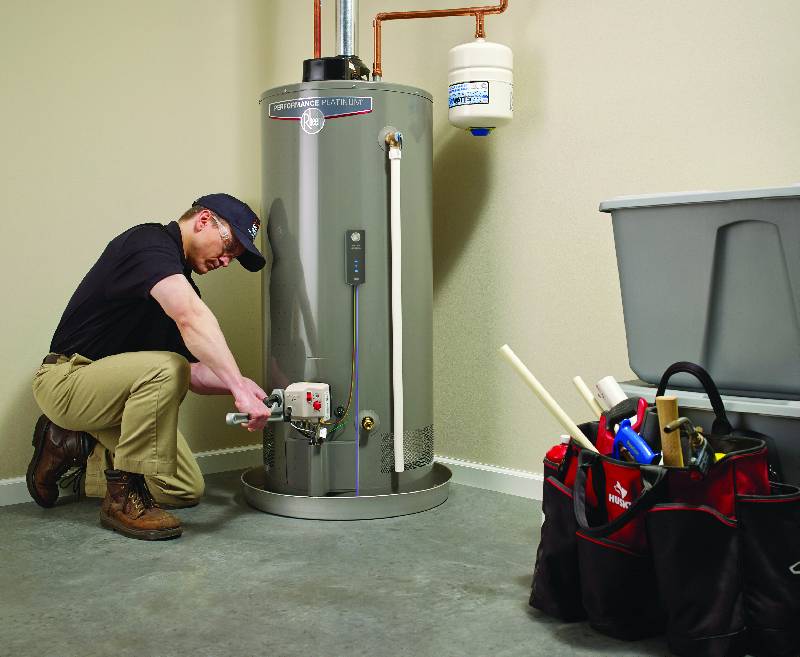A Step-By-Step Guide For Common Water Heater Problems
A Step-By-Step Guide For Common Water Heater Problems
Blog Article
This great article below on the subject of Water Heaters Problems is really informative. You should check it out.

Envision beginning your day without your routine hot shower. That currently establishes a bad tone for the rest of your day.
Every home requires a reliable hot water heater, yet just a few recognize how to take care of one. One simple way to maintain your water heater in top form is to check for mistakes consistently and repair them as quickly as they show up.
Remember to turn off your hot water heater before sniffing around for faults. These are the water heater mistakes you are more than likely to experience.
Water as well warm or also cold
Every hot water heater has a thermostat that establishes just how hot the water gets. If the water entering into your residence is also warm in spite of setting a practical optimum temperature level, your thermostat may be damaged.
On the other hand, also cold water may result from a stopped working thermostat, a broken circuit, or incorrect gas flow. For instance, if you use a gas hot water heater with a broken pilot light, you would get cold water, even if the thermostat is in best condition. For electrical heating units, a blown fuse might be the culprit.
Not nearly enough hot water
Hot water heater been available in lots of dimensions, relying on your hot water needs. If you run out of hot water before everybody has had a bathroom, your water heater is as well tiny for your family size. You need to consider setting up a bigger hot water heater storage tank or selecting a tankless water heater, which takes up less space and is more durable.
Unusual sounds
There are at least five sort of sounds you can learn through a water heater, yet the most typical analysis is that it's time for the hot water heater to retire.
Firstly, you should know with the typical sounds a water heater makes. An electrical heating system may appear different from a gas-powered one.
Popping or banging noises usually mean there is a slab of debris in your tanks, as well as it's time to clean it out. On the other hand, whistling or hissing noises might merely be your valves letting some pressure off.
Water leaks
Leakages could originate from pipelines, water connections, valves, or in the worst-case situation, the storage tank itself. With time, water will corrode the tank, as well as locate its way out. If this takes place, you require to replace your water heater asap.
However, before your modification your entire container, make sure that all pipelines remain in location and that each valve works flawlessly. If you still require assistance determining a leak, call your plumber.
Rust-colored water
Rust-colored water means one of your hot water heater elements is worn away. It could be the anode rod, or the tank itself. Your plumber will have the ability to determine which it is.
Warm water
No matter exactly how high you established the thermostat, you will not get any kind of hot water out of a heating system well past its prime. A water heater's performance may decrease with time.
You will certainly likewise obtain lukewarm water if your pipes have a cross connection. This indicates that when you activate a faucet, warm water from the heater streams in along with normal, cold water. A cross link is easy to spot. If your hot water taps still run after shutting the hot water heater valves, you have a cross link.
Discoloured Water
Corrosion is a major cause of unclean or discoloured water. Rust within the water container or a failing anode pole can trigger this discolouration. The anode rod safeguards the tank from rusting on the within as well as need to be checked yearly. Without a rod or a correctly functioning anode pole, the warm water swiftly rusts inside the tank. Contact a professional water heater technician to figure out if replacing the anode pole will certainly fix the problem; if not, replace your water heater.
Conclusion
Ideally, your water heater can last 10 years prior to you require an adjustment. Nevertheless, after the 10-year mark, you may experience any of these mistakes extra routinely. At this moment, you ought to add a brand-new hot water heater to your budget.
How To Troubleshoot 3 Common Water Heater Problems in Twin Cities
The Water Heater Is Leaking
A leaky cold water inlet valve A loose pipe fitting A leaky temperature and pressure relief valve A corroded anode rod A cracked tank Turn Off Your Water Heater:
Shut off your gas water heater by turning the gas valve on the unit to the “OFF” position. Shut off your electric water by switching its power off at your electrical panel. Look for a two-pole breaker labeled “water heater” and turn it to the “OFF” position. Move the ball valve connected to the water heater to be perpendicular to the piping at a 90° angle. Look for the Leak:
Depending on whether the water is coming from the tank's top or bottom, you’ll want to look for the leak in different locations.
If the leak comes from the top of the tank, carefully look for water escaping from the cold water inlet valve or loose pipe fittings. Rusted hot and cold water valves can have loose connections with the tank, with water leaking out of them.
https://mspplumbingheatingair.com/blog/how-to-troubleshoot-3-common-water-heater-problems
I was brought to that editorial on Common Problems with Tank Water Heaters from an associate on another website. Are you aware of anybody else who is very much interested in Common Problems with Tank Water Heaters? Take a moment to promote it. I appreciate reading our article about Common Problems with Tank Water Heaters.
Quick and efficient? Ring us! Report this page